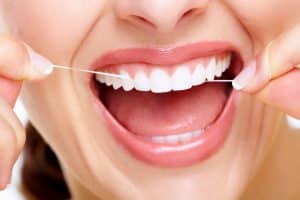 When you spend time thinking about your dental hygiene, you may discover that you come up with some new ideas that you assume might work for you. For instance, you may convince yourself that if you brush more often than twice a day, you will be able to skip flossing. We applaud your attempt at coming up with innovative and perhaps more convenient ways of caring for your oral health. However, at the end of the day, brushing twice and flossing once is still the only way to promote optimal dental health. Take a moment to understand why.
When you spend time thinking about your dental hygiene, you may discover that you come up with some new ideas that you assume might work for you. For instance, you may convince yourself that if you brush more often than twice a day, you will be able to skip flossing. We applaud your attempt at coming up with innovative and perhaps more convenient ways of caring for your oral health. However, at the end of the day, brushing twice and flossing once is still the only way to promote optimal dental health. Take a moment to understand why.
Why Extra Brushing Won’t Work
It’s understandable that you may think brushing extra will make up for a lack of flossing. Surely you just need to make an effort to really clean your teeth, right? Unfortunately, brushing without flossing will never provide you with the comprehensive benefits you achieve from combining brushing with flossing. Your toothbrush cannot ever replace floss because you cannot effectively brush between your teeth or beneath the entirety of the accessible region beneath your gumline. Protecting your oral health means brushing and flossing.
What Flossing Accomplishes
Flossing is a way to protect your oral health by removing bacteria, plaque, food, and any other debris that has become lodged between your teeth or beneath your gum tissue. While your brush may remove a very small percentage of these substances, it will not do much. Flossing quickly breaks up the bacteria and cleans these areas, so tartar doesn’t form, so you don’t end up with decay, and so gingivitis does not occur.

